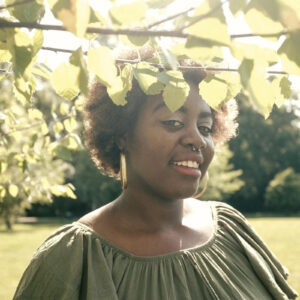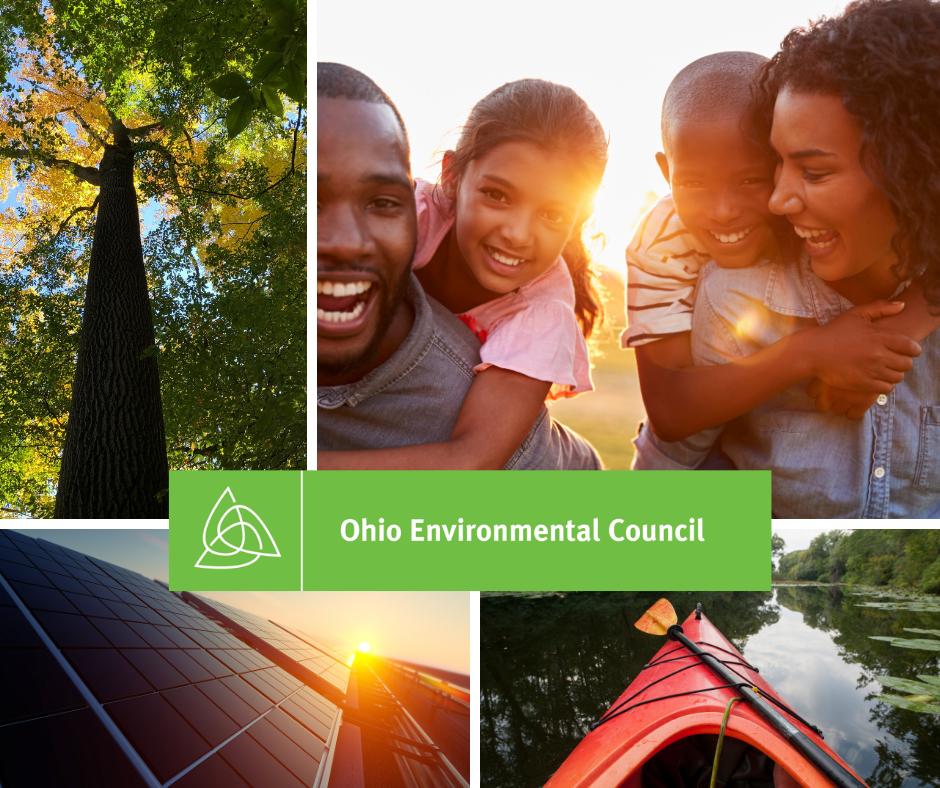Blog
Tagged In: Energy Justice, GreenWatch, Q&A
Intersectionality, Collaboration, and Energy Justice: A Q&A with Energy Justice Fellow Dion Mensah
Dion Mensah, May 3, 2022
Dion Mensah joined the OEC in January as our first-ever Energy Justice Fellow. We interviewed Dion to learn more about their role and reflect on their first few months on the team.
We interviewed Dion to learn more about their role and reflect on their first few months on the team.
How did you learn about the Ohio Environmental Council?
I first learned about the OEC in college out of an interest in the environment and climate work being done in Ohio because I constantly felt like the conversation was dominated by other states.
As the organization’s first Energy Justice Fellow, what has your role looked like so far?
Right now I’m focused on the Energy Jobs and Justice Act (EJJA) and an upcoming report on the costs of climate change. The EJJA is statewide legislation with three main components of equity, carbon reductions, and transparency and accountability–that last bit being super relevant to Ohio given the scandal associated with House Bill 6. The report will be a really cool tool to understand the costs of climate change and how those costs will impact local governments.
In terms of your individuality, what do you feel you bring to this work and why are those things important to you?
My lived experiences as a Black queer and trans person I feel is unique, especially in the environmental realm where I just don’t see people like me. A lot of energy justice is about undoing the historical wrongs done to people from marginalized communities. And I have more of that perspective than not. My perspective comes from a place where all of these things, including my collaborative organizing experience, are combined. That intersectionality is so important because that’s what energy justice needs to be.
How does your fellowship impact the work others do?
What I learn in my role impacts the message we share about energy justice throughout the organization. Our Northwest Ohio Regional Director Nick Mandros helped craft an ordinance in Toledo to create a “1% for the Environment” fund and I was tapped in to help build the language. For the future, I’m trying to set really clear boundaries of what this fellowship will be because it’s brand new. It’s my goal that what energy justice is, is very clearly defined at the OEC.
What have you learned so far in this role?
I’ve been learning about all the different existing groups and initiatives in Ohio and how much coalition building is happening. Another thing is honestly a lot about energy justice—different community-driven solutions, ways we can move towards renewable options, the ways energy injustice has been happening for so long. I’ve also learned a lot of technical stuff, which is exciting.
What has been a challenge in this role?
Making sure I don’t over commit myself to things. I’m really enthusiastic about the work that the OEC does and the more that I learn about all the different teams and all the different moving pieces here, the more I want to get involved. So it’s hard to make myself wait in these early stages.
What brings you joy in all this work?
Number one is the really cool people who are also really excited about making a difference in the environmental world. What also brings me joy in a lot of this is thinking about how the work I do here could tangibly impact the future of Ohio’s local communities.
I remember in my last year of school thinking all the environmental justice careers are in Michigan or Illinois, and nothing’s here. So to find a role that so explicitly welcomes and centers justice as well as energy is really exciting to me. I thought I’d have to wait a lot longer to see a position like this in Ohio.
